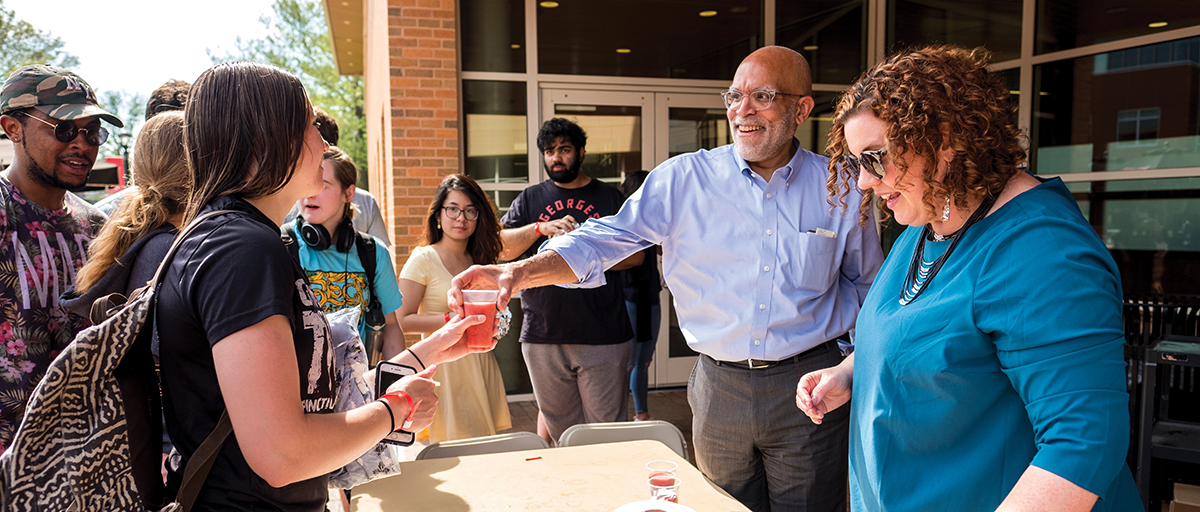A number of former top administrators at U-M are now leading prestigious institutions of higher learning. (See “From Provost to President”) What’s more, so are our alumni. We asked one Wolverine—the president of Grinnell College—how his time at U-M as a student influenced his career and led to his current job.
I entered U-M in the fall of 1976 as a first-year student in the Inteflex Program, one of a small number of U.S. programs that allowed individuals to complete a bachelor’s and medical degree in six years. (The program began in 1972 and ended in 2002.) Even as I started the program, I knew I was not going to follow a traditional medical career path—but that was about all I knew about my future.
I was intellectually attracted to the scientific exploration of the human body and intrigued by the idea that physicians have front-row exposure to the lived experience of what it means to be human. My father, a physician, and my mother, a teacher and community worker, instilled in me the idea that I could do whatever I found interesting and meaningful. As a gay, African-American man, I was acutely sensitive to some of society’s major problems and wanted to tackle them. Health care for disadvantaged populations seemed to be a good a place to start.
My first year at U-M was a challenge socially—I was only 16 and deeply homesick—but I did well academically and began to feel at home. I soon realized that Michigan, like all great universities and colleges, was all about providing the opportunity to learn and explore.
The U-M experience that probably had the greatest impact on my career path did not take place in Ann Arbor; it was a summer internship in the office of U.S. Rep. Clarence Long in Washington, D.C. The opportunity arose because of a Michigan program that helped students with an interest in public policy secure internships in congressional offices.
That summer changed everything. It opened my mind to the wide spectrum of ways one can have an impact on health and society. More importantly, it helped me develop the confidence to define my own path rather than follow a traditional medical or research career. It also provided the spark that after my residency led me to pursue my MBA and a PhD, with a concentration in health policy and economics at the University of Pennsylvania’s Wharton School.
One important element of that summer experience was that none of my advisers or mentors at U-M said the internship was “odd” or “a waste of time.” No one asked, “Why aren’t you working in a research lab?” I sensed everyone at the University really did expect students to go out into the world and make a difference. They also realized those experiences might lead us to forge new pathways.
My postgraduate training, in turn, led to my following a series of nontraditional career moves. I conducted health policy research at the RAND Corporation, ran a large national epidemiological study at the Centers for Disease Control and Prevention, and held a series of leadership positions in science policy and management at the National Institutes of Health.
Then, 28 years after graduating from U-M’s medical school, I became the president of Grinnell College, a leading, liberal arts college in Iowa. I landed the job primarily because of my deep belief in the power of higher education to open minds and opportunities.
At Grinnell, I tell students that career paths are seldom straight. Be open to possibilities, and pay attention to those things that seem interesting to you. Because you never know where you will end up.
Raynard S. Kington, ’79, MD’82, HLLD’12, is president of Grinnell College in Grinnell, Iowa.





